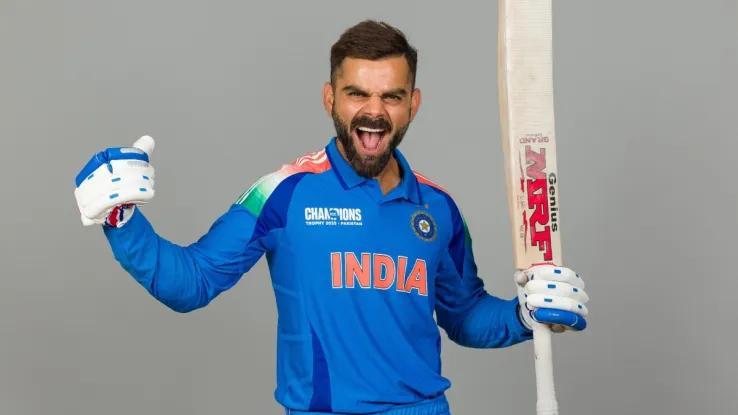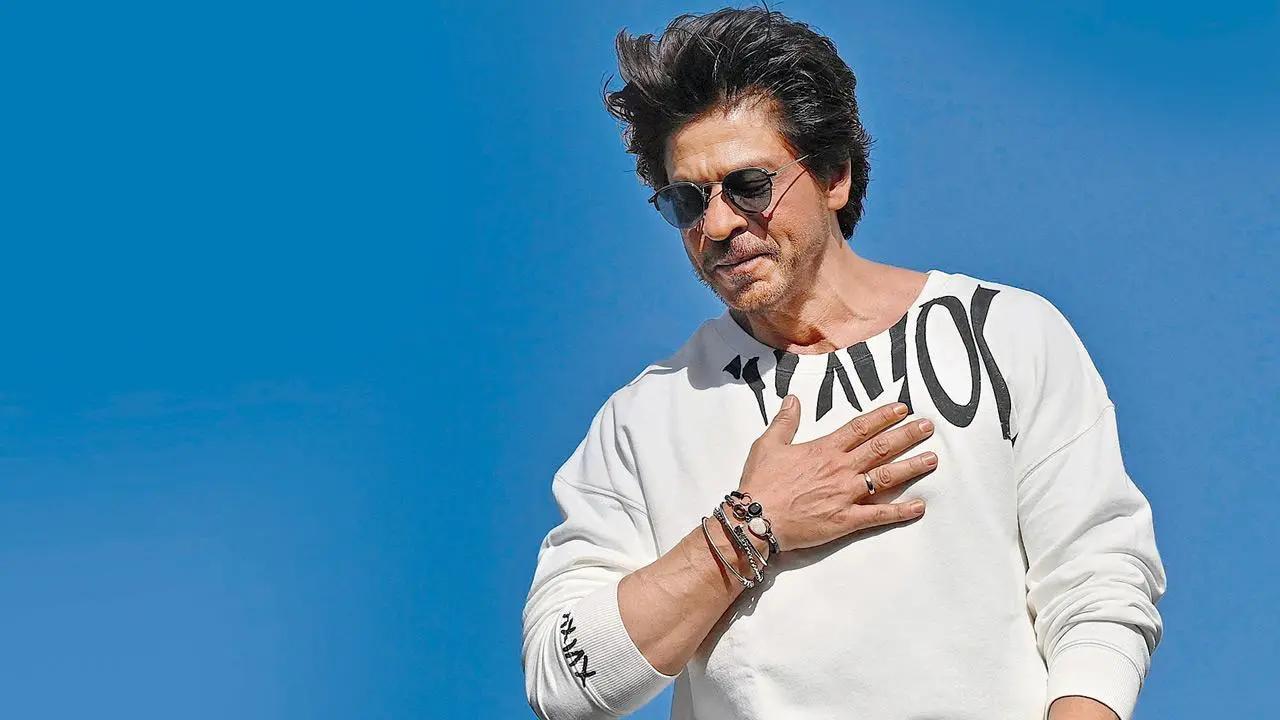
Chris Keyser, who led Writers Guild of America’s negotiating committee during the 2023 strike, emphasises that solidarity is essential for Indian screenwriters to fight low pay and unfair contracts
Chris Keyser
Acclaimed American writer Chris Keyser was among the chief speakers at the Indian Screenwriters Conference, hosted by the Screenwriters Association of India (SWA) in Mumbai last week. He was the co-chair of the Writers Guild of America’s (WGA) negotiating committee during the 2023 strike when over 11,000 Hollywood film and television writers walked off their jobs in May 2023 and brought showbiz to a grind until their demands for better wages, increased staffing on shows, and shorter exclusive contracts were met in September that year. At a time when Indian screenwriters are spotlighting poor remuneration and unfair contracts, Keyser emphasised that solidarity was the only way the community could address the challenges in the Indian entertainment industry.ADVERTISEMENT“There are unique challenges in India. In the US, the primary advantage is that the law allows us to bargain collectively. If you are a professional writer in the United States, with some limited exceptions, you have to be a member of the Writers Guild, and a company that’s a signatory to the minimum basic agreement of the Writers Guild has to hire Guild writers. So, we have control of the workplace. It gives us a shot at establishing solidarity and negotiating the contract. That’s different from the way things are here, and that solidarity is crucial,” asserted Keyser, known for the Golden Globe-winning drama Party of Five (1994), and The Society (2019).Anjum RajabaliThe veteran writer admitted he can’t help the SWA or the community of Indian writers navigate the specifics because the market demands are different here. That difference is evident as American OTT giants, from Netflix to Prime Video, have dissimilar operating systems in India from those back home.
From the pay structure to the privileges, the same rules don’t apply here. How did he negotiate with the studios, we asked him, hoping it can provide lessons for Indian writers. He indicated that it wasn’t easy. “Once every three years, we re-negotiate the minimum basic agreement. We present our demands to the major studios. Then they come back and say, ‘Here are the things we want to take out of the contract,’” he shares. Keyser added, “We have conversations over weeks before the contract expires and head toward the key issues that need to be negotiated. We don’t get everything we want, but we get enough so that it’s not worth going out on strike.”
He indicated that strikes, like the one seen in 2023, are usually the last resort. “Once in a while, the situation on the ground and the way writers are being treated demand that changes be made. If we get to the deadline and the companies have not come anywhere around [to meeting our demands], that’s when we strike. But there is no magic to it. It’s a complicated, weird dance between the studios and the Writers Guild. It comes down to the exercise of power. And the writers’ power comes from the fact that nothing happens without us. So, when we withhold our work over a period of time, that puts economic pressure on the companies. They are extraordinarily powerful. But the cycle of 2023 proves that studios are not all-powerful.”
Chris Keyser from the Writers Guild of America addresses the crowd of writers and actors at a rally. Pic/AFP
Even as Indian writers are currently getting the raw end of the deal, the story unfolding on the silver screen is entirely different. Indian cinema is steadily making its presence felt around the globe with films like RRR (2022) and All We Imagine as Light (2024). Keyser is hopeful of Indian content. “Periodically when a movie becomes part of the world culture, like RRR or All We Imagine as Light, you take notice,” he said, indicating that Indian cinema today is witnessing forces that Hollywood did a few years ago. “India is where we were some years ago. There was a period when you could either make a huge movie with an enormous budget, or you made a small movie. But you couldn’t make [the mid-budget] $20 million movie. So, romantic comedies and straight comedies went away. Also, as people moved away from theatres and started watching at home, [films in those genres] didn’t get made in the same way [as they used to before] anymore.”
One of the looming problems in entertainment is AI. One can personally feel that AI is not in a position to dominate the scene yet, but it could be the inevitable future. How is the WGA tackling AI, and what can SWA do better? “In the US, AI-generated material does not have copyright protection. We assumed that the studios were so protective of their own work that they would be scared of AI in the same way that writers were. But they didn’t behave like that initially. By the end of the negotiation of the contract, negotiated terms that protected writers’ core rights, their right to compensation and credit, and all their additional contractual rights said that they can’t be forced to rewrite AI, nor can AI rewrite their material, and that AI can’t get credit. What we couldn’t do is have conversations with companies like Google or OpenAI. [We need to have conversations about] the extent to which they begin to take our material. There have been stories about that already. That’s scary. We think the studios should be taking action against those companies. It’s a risk.”
The biggest problem of the Indian film industry has been the fear of censorship. Keyser again pointed out that things operate differently in the US on that count. He said, “One question for all writers is, how do you fight censorship? The second question is, in a world where we’re limited in what we say, how do we push boundaries? One of the answers is to subvert a little bit. [You can] hide intentions behind things that are palatable, and understand exactly how far you can go. If you go too far, you’re going to be shut down. But within the world that is somewhat censored, the skill is to know what you can get away with and how you can change the world slowly.”
Acclaimed American writer Chris Keyser was among the chief speakers at the Indian Screenwriters Conference, hosted by the Screenwriters Association of India (SWA) in Mumbai last week. He was the co-chair of the Writers Guild of America’s (WGA) negotiating committee during the 2023 strike when over 11,000 Hollywood film and television writers walked off their jobs in May 2023 and brought showbiz to a grind until their demands for better wages, increased staffing on shows, and shorter exclusive contracts were met in September that year. At a time when Indian screenwriters are spotlighting poor remuneration and unfair contracts, Keyser emphasised that solidarity was the only way the community could address the challenges in the Indian entertainment industry.
ADVERTISEMENT
“There are unique challenges in India. In the US, the primary advantage is that the law allows us to bargain collectively. If you are a professional writer in the United States, with some limited exceptions, you have to be a member of the Writers Guild, and a company that’s a signatory to the minimum basic agreement of the Writers Guild has to hire Guild writers. So, we have control of the workplace. It gives us a shot at establishing solidarity and negotiating the contract. That’s different from the way things are here, and that solidarity is crucial,” asserted Keyser, known for the Golden Globe-winning drama Party of Five (1994), and The Society (2019).
Anjum Rajabali
The veteran writer admitted he can’t help the SWA or the community of Indian writers navigate the specifics because the market demands are different here. That difference is evident as American OTT giants, from Netflix to Prime Video, have dissimilar operating systems in India from those back home.
From the pay structure to the privileges, the same rules don’t apply here. How did he negotiate with the studios, we asked him, hoping it can provide lessons for Indian writers. He indicated that it wasn’t easy. “Once every three years, we re-negotiate the minimum basic agreement. We present our demands to the major studios. Then they come back and say, ‘Here are the things we want to take out of the contract,’” he shares. Keyser added, “We have conversations over weeks before the contract expires and head toward the key issues that need to be negotiated. We don’t get everything we want, but we get enough so that it’s not worth going out on strike.”
He indicated that strikes, like the one seen in 2023, are usually the last resort. “Once in a while, the situation on the ground and the way writers are being treated demand that changes be made. If we get to the deadline and the companies have not come anywhere around [to meeting our demands], that’s when we strike. But there is no magic to it. It’s a complicated, weird dance between the studios and the Writers Guild. It comes down to the exercise of power. And the writers’ power comes from the fact that nothing happens without us. So, when we withhold our work over a period of time, that puts economic pressure on the companies. They are extraordinarily powerful. But the cycle of 2023 proves that studios are not all-powerful.”
Chris Keyser from the Writers Guild of America addresses the crowd of writers and actors at a rally. Pic/AFP
Even as Indian writers are currently getting the raw end of the deal, the story unfolding on the silver screen is entirely different. Indian cinema is steadily making its presence felt around the globe with films like RRR (2022) and All We Imagine as Light (2024). Keyser is hopeful of Indian content. “Periodically when a movie becomes part of the world culture, like RRR or All We Imagine as Light, you take notice,” he said, indicating that Indian cinema today is witnessing forces that Hollywood did a few years ago. “India is where we were some years ago. There was a period when you could either make a huge movie with an enormous budget, or you made a small movie. But you couldn’t make [the mid-budget] $20 million movie. So, romantic comedies and straight comedies went away. Also, as people moved away from theatres and started watching at home, [films in those genres] didn’t get made in the same way [as they used to before] anymore.”
One of the looming problems in entertainment is AI. One can personally feel that AI is not in a position to dominate the scene yet, but it could be the inevitable future. How is the WGA tackling AI, and what can SWA do better? “In the US, AI-generated material does not have copyright protection. We assumed that the studios were so protective of their own work that they would be scared of AI in the same way that writers were. But they didn’t behave like that initially. By the end of the negotiation of the contract, negotiated terms that protected writers’ core rights, their right to compensation and credit, and all their additional contractual rights said that they can’t be forced to rewrite AI, nor can AI rewrite their material, and that AI can’t get credit. What we couldn’t do is have conversations with companies like Google or OpenAI. [We need to have conversations about] the extent to which they begin to take our material. There have been stories about that already. That’s scary. We think the studios should be taking action against those companies. It’s a risk.”
The biggest problem of the Indian film industry has been the fear of censorship. Keyser again pointed out that things operate differently in the US on that count. He said, “One question for all writers is, how do you fight censorship? The second question is, in a world where we’re limited in what we say, how do we push boundaries? One of the answers is to subvert a little bit. [You can] hide intentions behind things that are palatable, and understand exactly how far you can go. If you go too far, you’re going to be shut down. But within the world that is somewhat censored, the skill is to know what you can get away with and how you can change the world slowly.”










